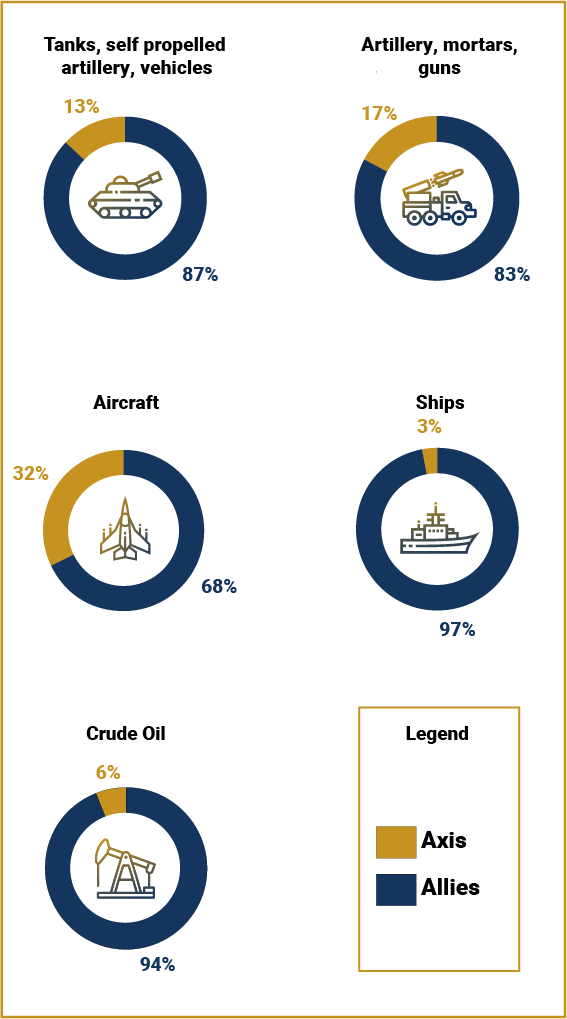Why it matters where products are made, even more than you might think.
8 min. read
- Why manufacturing is the cornerstone of every society
- The current state of manufacturing in free countries
- Using free trade responsibly
- The dangers of outsourcing manufacturing
- Benefits of supporting responsible manufacturing
- Conclusion
- How Made By Liberty wants to help
I know, for many of us, this might be the hundredth thing we’re supposed to care about and it’s starting to get pretty exhausting to keep track of all the issues facing us today. I completely understand, I often have the same feeling. But if you give me five minutes, I might just make everything a lot more simple for you.
If you’re already aware of the importance of product origin, I still recommend you check out this article. I’ve tried to give a brief summary of all the various reasons behind it, so you might still discover a thing or two you weren’t aware of and perhaps it will help you explain to others why they should care as well.
Why manufacturing is the cornerstone of every society.
When people hear the word “manufacturing”, it often sounds very vague and doesn’t really paint a clear picture of what it actually is. Therefore, I would like to give a simple definition:
Manufacturing is the business of making things.
If you think about manufacturing in that sense, it becomes a lot easier to see why it’s so important.
Just take a minute to realize all the things you used today, that had to be manufactured for you to enjoy. The bed you sleep in, the clothes you wear, the stove your food was cooked on, the device you’re reading this article on, etc. But also the medicine you might have to take to stay healthy and the farming equipment used to grow the food you eat.
Manufacturing is not just about job numbers or GDP, it’s about making the things we need to survive and live a happy, comfortable life.
The current state of manufacturing in free countries.
During the Covid-19 pandemic many of us experienced for the first time what it was like to see empty super market shelves. A lot of products we were used to having available to us at all times suddenly became expensive and harder to get.
A big reason for this is that most richer countries have outsourced their manufacturing to other, often far-away, nations. Just check a couple of products lying around your house and chances are, most were made in a handful of Asian countries.
Because of this, products and components often have to go through a long complicated chain of logistics to get to their destination. And when one of those links break, the whole system is in trouble.
So you can probably see that it’s better for products to be made closer to where you live.
However, we should also be mindful about exactly which country a product is made in.
Using free trade responsibly.
Free trade is a great concept; it allows for worldwide competition, which benefits consumers, and gives poorer countries a chance to compete and become wealthier. However, it should be used responsibly.
I personally believe we shouldn’t trade with or buy products from countries that don’t meet the following conditions:
- The country must respect the individual liberty of its own citizens as well as those of other countries.
- The country must respect the rules of fair competition and not use preferential practices to give their own companies an unfair advantage towards foreign competitors.
These two conditions are obviously relative and no country in the world completely adheres to them, sometimes for good reasons. But we can use the degree to which a country obeys these principles as a standard of measurement.
In the next segments I want to first lay out the dangers of buying products from countries that don’t respect these principles and then, to end on a positive note, the benefits of buying from those that do.
The dangers of outsourcing manufacturing.
While I like to focus on the positive side of things at Made by Liberty, it’s still important to understand the dangers that come with outsourcing manufacturing to countries that don’t respect individual liberty. So let’s get those out of the way first.
All of these are nuanced topics and probably deserve a post on their own, but I’m just giving you a quick overview here.
1. Feeding the monster
If a country doesn’t respect the freedom of its own citizens, you can’t expect them to respect yours.
So when you buy a product that was made in such a country, keep in mind that a portion of the price is going towards a government that doesn’t share your values and can use that money to impose their own views upon the world. Either through propaganda and financial power or through force.
2. Buying your own chains.
As mentioned earlier, the free world has outsourced a large portion of its manufacturing throughout the last several decades. Unfortunately, most of it went to countries with a dubious reputation when it comes to individual liberty and fair trading practices.
By doing so we have lost the ability to manufacture many products altogether and made ourselves more and more dependent on these countries and their goodwill.
Since they don’t share our fundamental values, that can be a difficult and dangerous situation. Think of how Europe is chained down by its dependence on Russian gas in the Russian-Ukrainian war.
So when you choose to buy products made in those countries, you’re further increasing how much you depend on them for your own well-being, as well as further endangering the last few manufacturers left in free countries. And once an industry has all but died out in a country, it’s very difficult to bring it back.
3. The worst case scenario.
While it’s not a nice thing to think about, it’s still important to consider what would happen if war broke out. And history has taught us a grim, but important, lesson in this aspect: World War 2.
Tactics and morale are important factors in any war, but take a look at this graph. It shows the differences in production between the Allied- and Axis powers.
By looking at it, the victory of the Allies suddenly looks inevitable, no matter how hard or smart the Axis powers would have fought.
This huge difference was mainly possible because the USA had a highly industrialized civilian economy. It had some of the most advanced factories and most experienced engineers in the world, which allowed it to ramp up the production for war material extremely quickly. Which rightfully earned the USA its title as ‘the arsenal of democracy’.
Now imagine if the Allies had outsourced their peace-time manufacturing to Japan and Germany. The war might have had a very different outcome…
Bonus: If you’re interested, I highly recommend this documentary on the topic of American WW2 production.

The benefits of supporting responsible manufacturing.
Now that we have the negatives out of the way, let’s take a look at the benefits of buying products made in your own or other free countries. Again, these are nuanced topics, but here’s a quick overview.
1. Future security.
If you buy products from manufacturers located in free countries, you help them stay in business and ensure that they can keep providing you with those products in the future.
The chances of those products becoming more expensive or unavailable due to geopolitical tensions or supply chain issues is a lot lower, even more so if you buy domestically or from neighbouring countries.
Sometimes paying a little more now, can really pay off in the long run.
2. Support middle class jobs.
The manufacturing industry is changing. Today, automation is taking over many of the repetitive and dangerous jobs, replacing them with more high-tech jobs.
These kind of jobs often don’t require college degrees, but do pay proper middle class wages. Wages that can support families, build decent homes and provide opportunities for the upcoming generations; making the manufacturing industry one of the best at creating a strong middle class.
You can help support these jobs and create a future for free nations with a large middle class employed in fulfilling, value creating jobs, making for a more equal and free society.
3. Sustainable production.
Many free societies have stricter environmental and social standards because citizens can openly protest damaging practices.
Companies can circumvent these rules by moving production to countries that don’t have these rules in place; making the production cheaper, but also damaging the global environment.
By supporting responsible manufacturers, you’re often contributing to a cleaner environment and more humane working conditions.
4. Better products.
You probably heard the phrase “they don’t make them like they used to” at least once before. If you haven’t; there seems to be a general sentiment that products used to be of higher quality.
While that’s difficult to accurately measure, in many cases it seems to actually be true. And outsourcing may be partially responsible for this. Just ask yourself this:
Who do you think will make better products: a company that can be held accountable by its customers and who’s workers make products that might be used by their own friends and family, or a far-off factory that never encounters its customers and cannot be held responsible by them?
Conclusion
I hope this helped you understand a little better why it’s so important to look at the origin of the products you buy. While you might not agree with some of the reasons mentioned above, I think the overall picture is pretty clear.
Buying products made in free countries is hugely beneficial in respect to both our freedom and material security, as well as to the environment and economy.
In fact, it can help solve many other problems we’re facing today, like an increasing wealth gap, unemployment, toxic waste and climate change. Which in turn may have a positive effect such as lowering crime rates and increasing political stability.
I certainly don’t want to imply that buying responsibly is the magic bullet to solve all problems. However, I do believe it’s one of the best things you can do to make the world a better place for yourself as well as others.
How Made By Liberty wants to help.
Unfortunately, because so much of our manufacturing has been outsourced, it’s often surprisingly difficult to find products made in free countries. Even more so if you don’t want them to contain any imported components.
I believe that making the right choice should be as easy as possible, so through Made By Liberty, I want to help make responsibly made products readily available to everyone. Right now, the best way I found for doing so is through this blog where I to write honest reviews and guides that help you find whichever product you need made in your country of choice.
Of course, I only have so much time to write posts, so if there’s something you’re looking for that’s not listed on the website, don’t hesitate to reach out to me through email or social media and I’ll be happy to give you any recommendations if I have them!

Leave a Reply